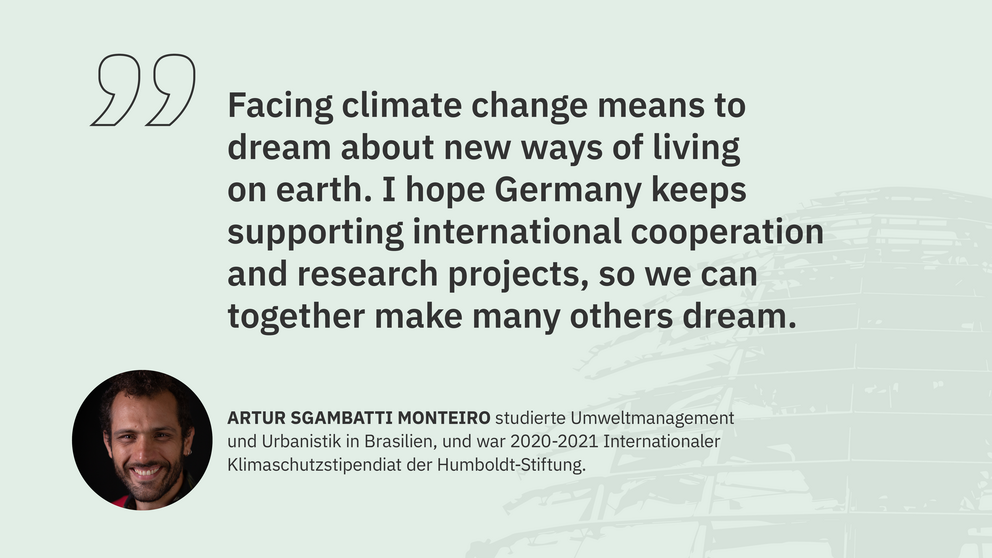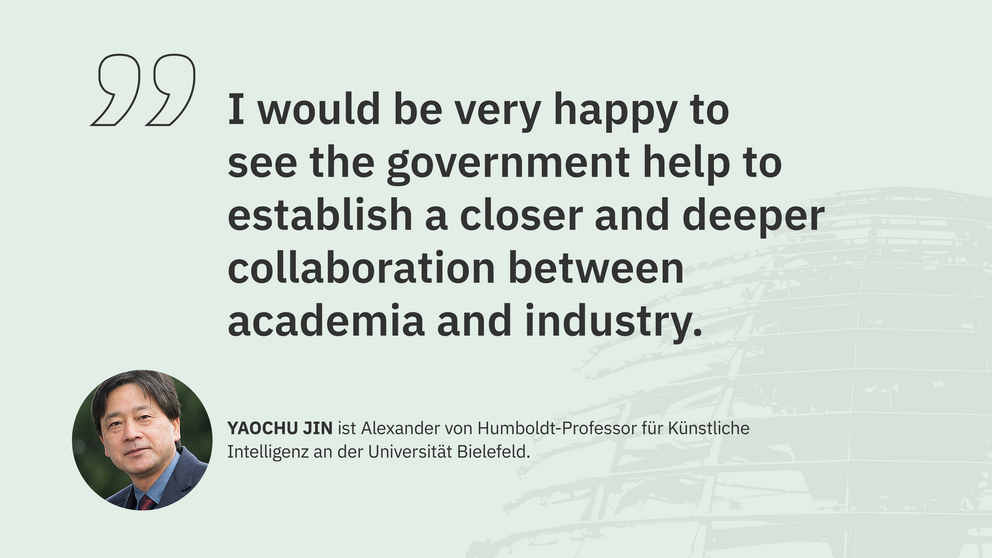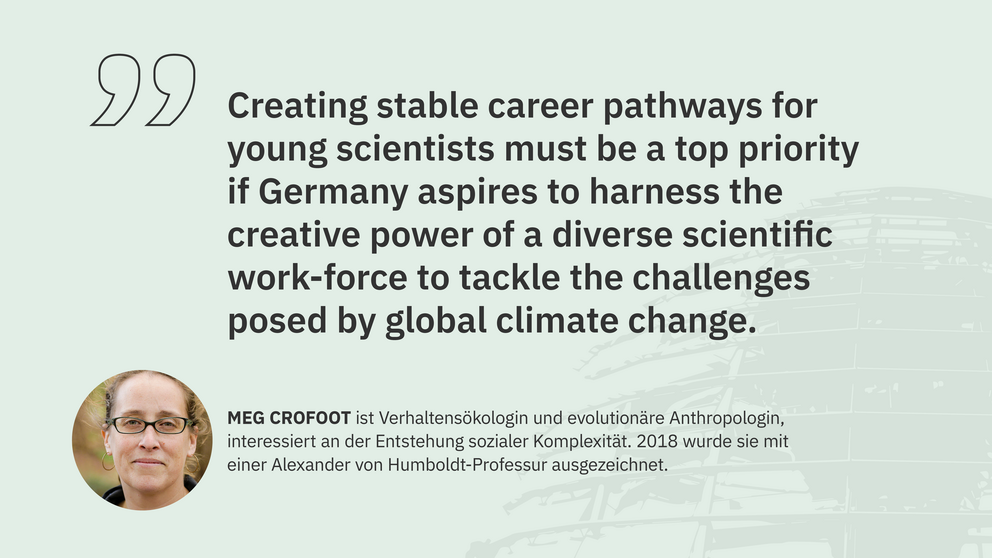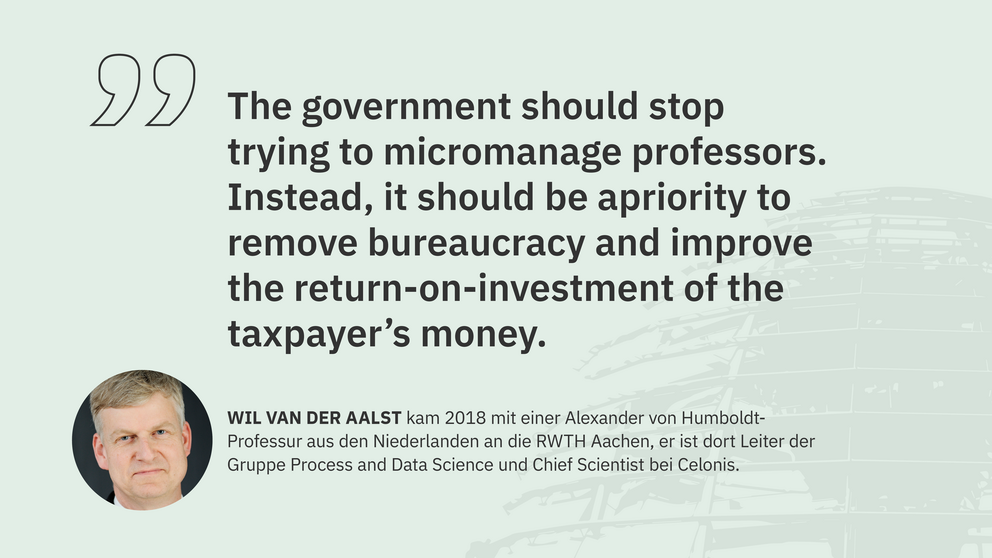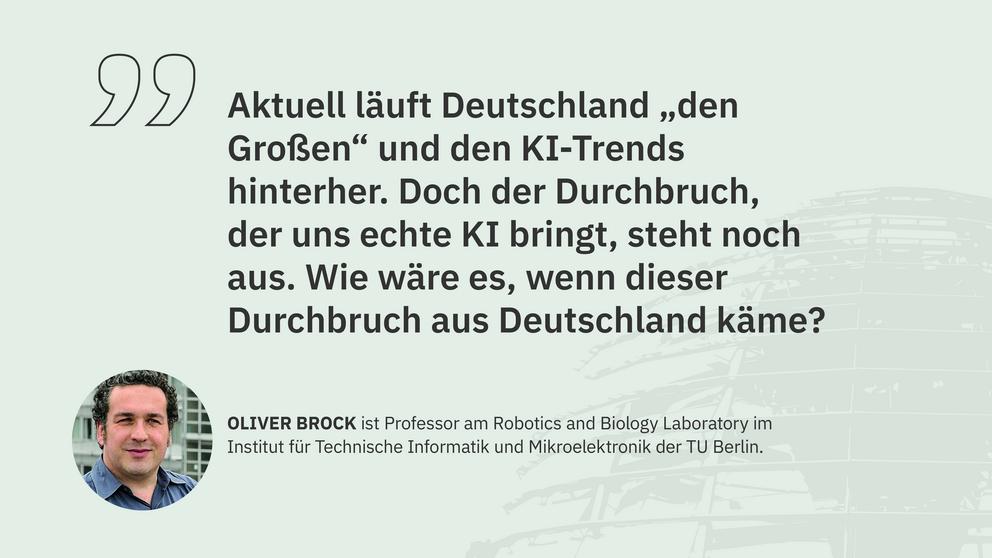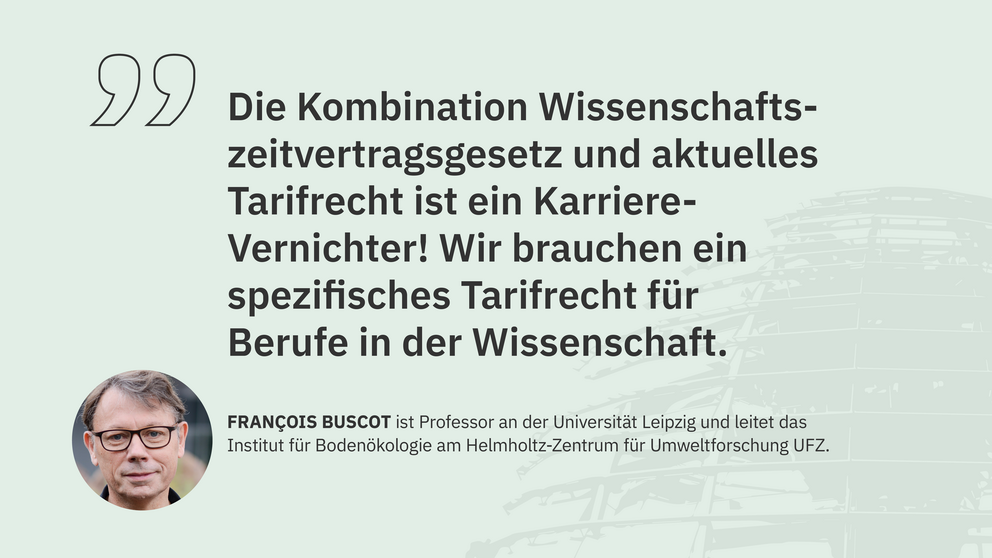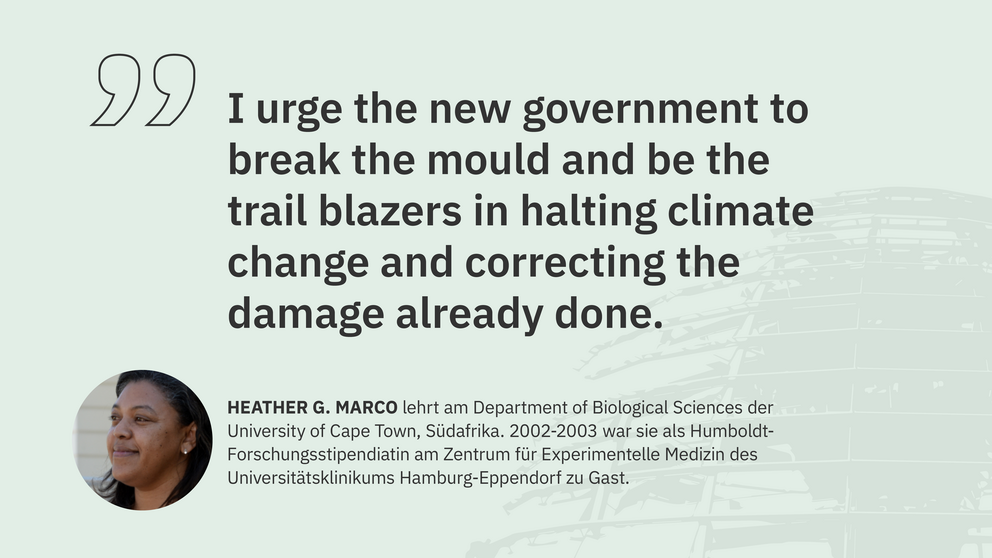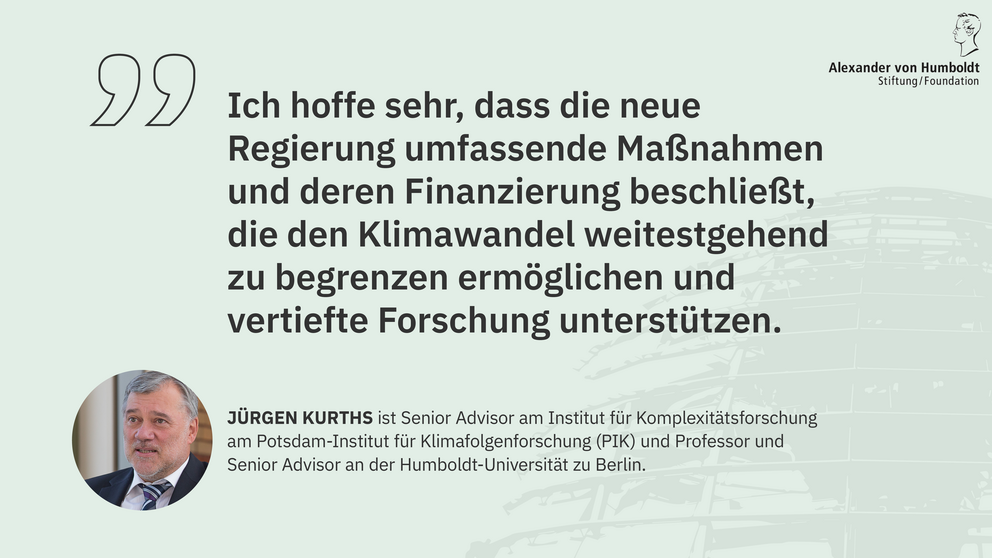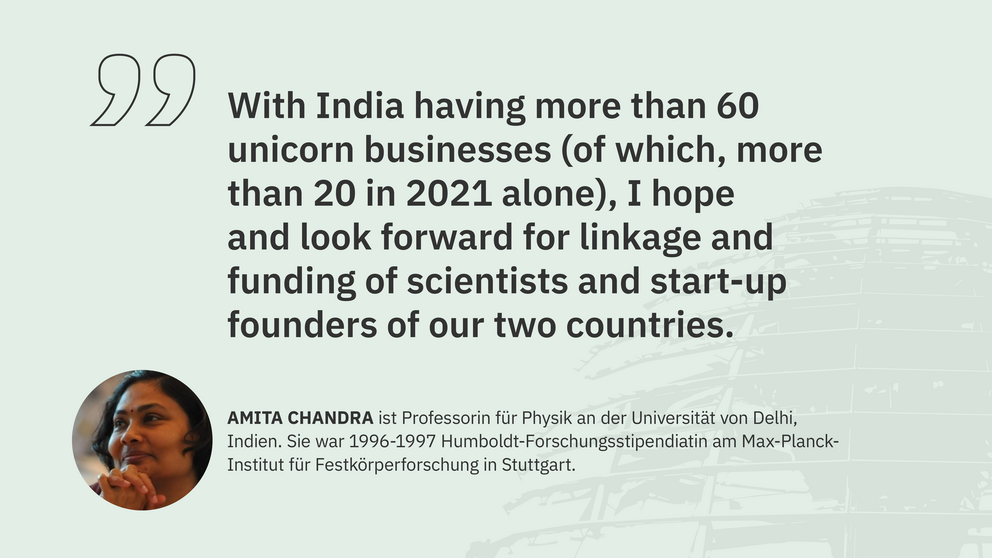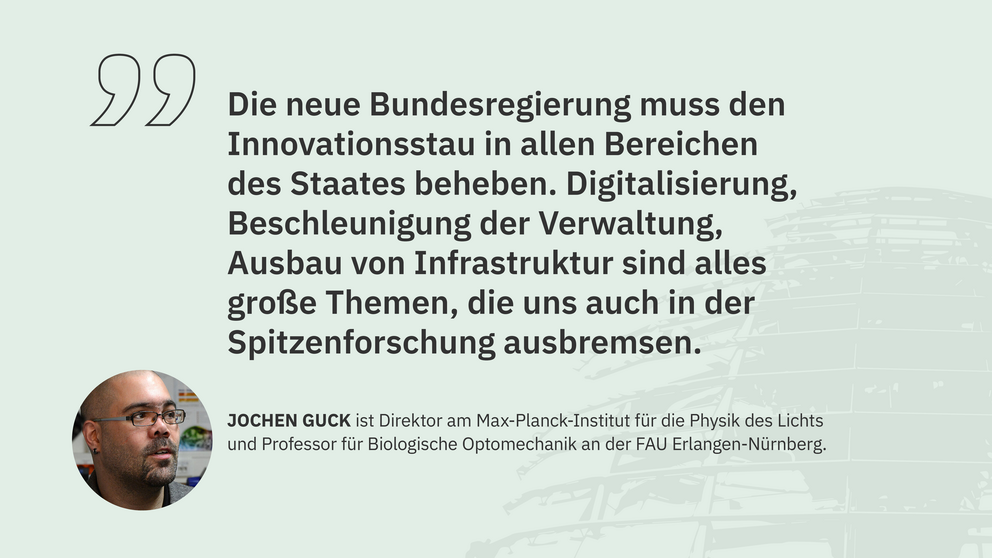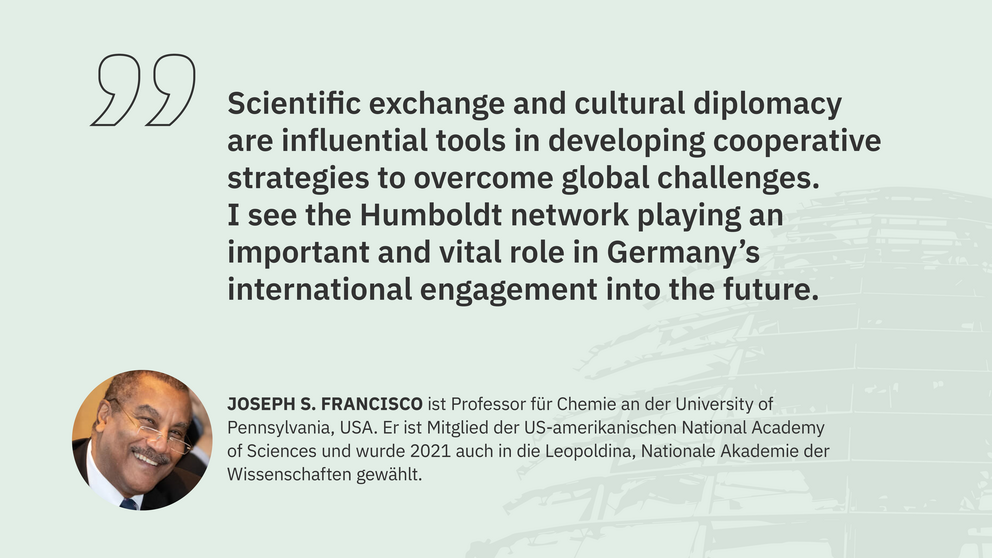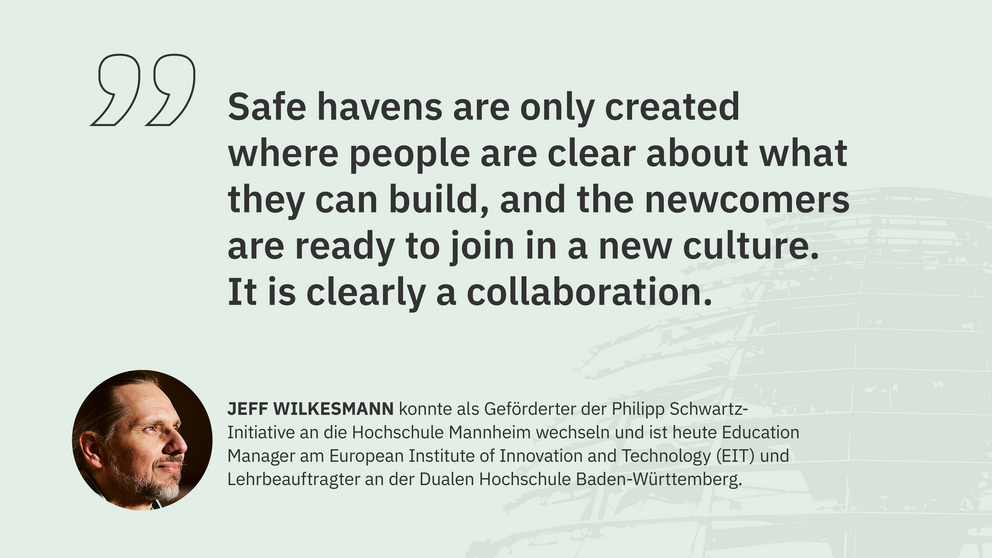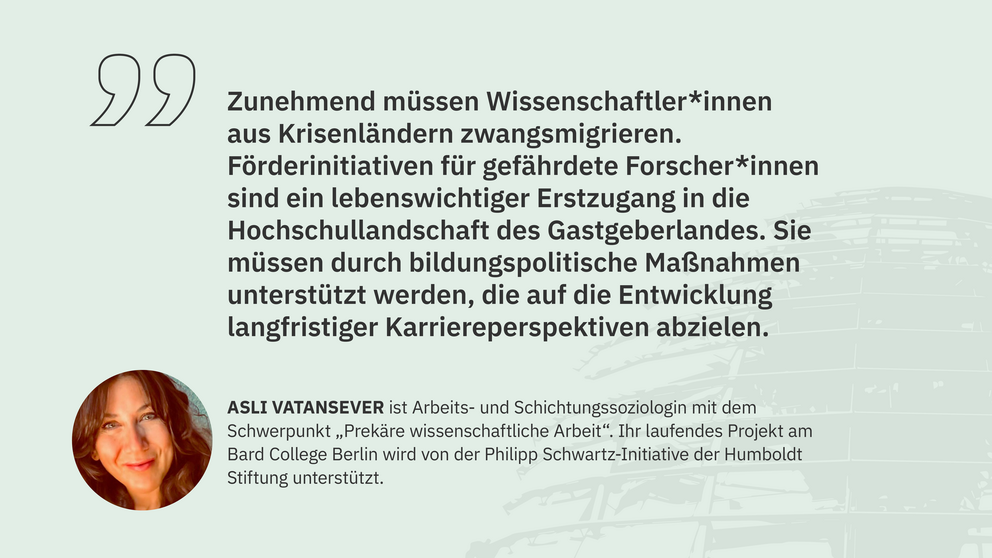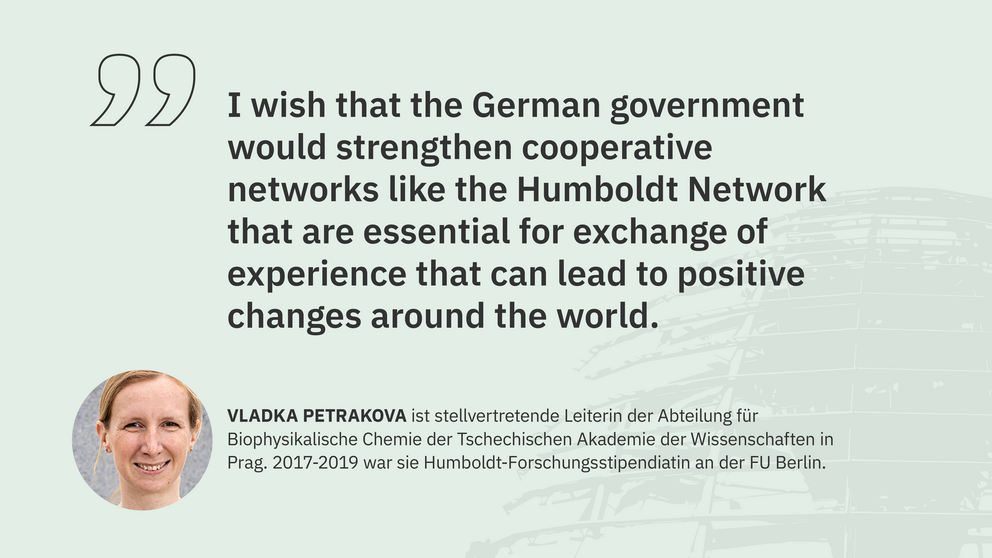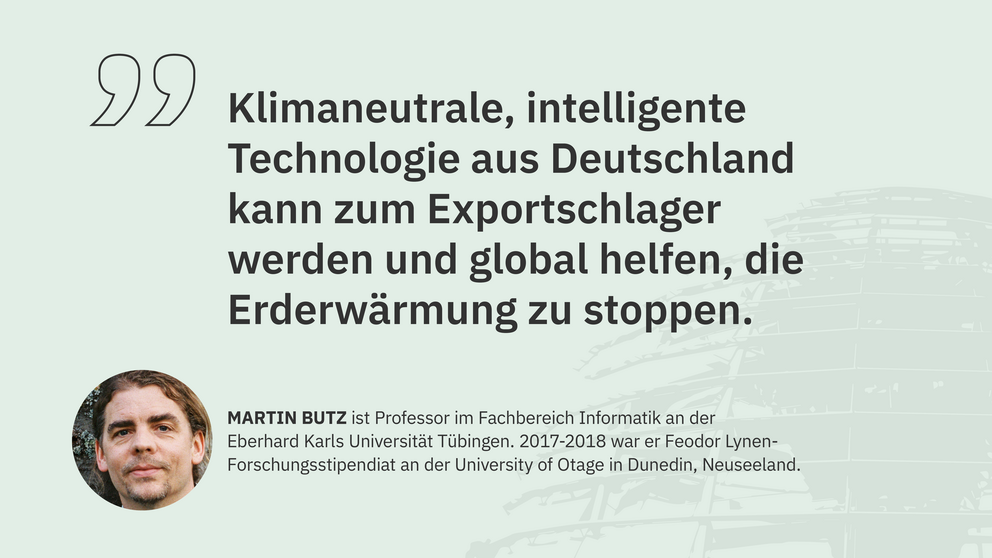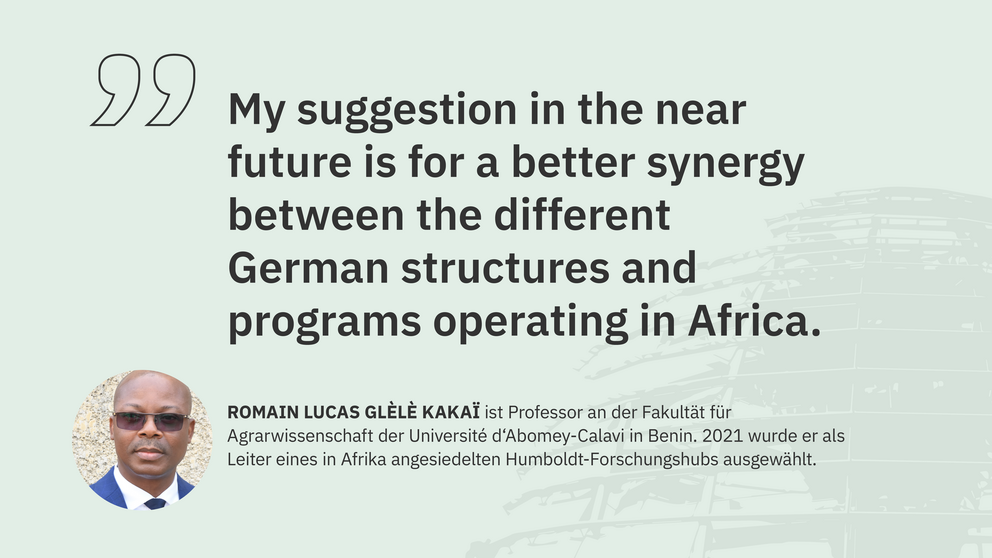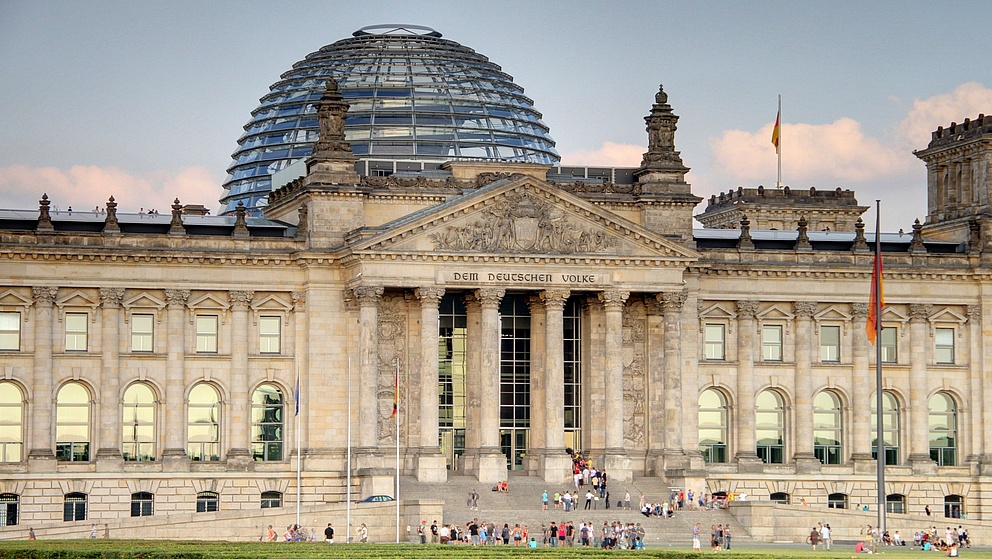
What do international and German researchers expect and hope for from the new German government? What role should Germany play internationally, such as in the area of climate protection or science diplomacy? What needs to be improved in Germany so that researchers can work productively and quickly implement their findings? The Alexander von Humboldt Foundation has collected comments from its research network in Germany and abroad.
We need to be more willing to take risks and should cultivate a stronger start-up mentality. The new government must thin out Germany’s thicket of minutely detailed regulations and so create space for innovation
The list of changes being called for includes improving digitalisation, streamlining and speeding up administrative processes, expanding infrastructure, facilitating commercial applications and spin-offs, and providing impetus for making it easier to transfer knowledge to commercial applications. Humboldtians however also want to see increased interdisciplinarity and diversity as well as better advancement and fostering of talented individuals. Greater flexibility and speed plus a separate collective bargaining law for people working in science can also be found on their list of hoped-for reforms.
According to the researchers, Germany should continue and step up its international involvement in climate protection and science diplomacy and its advocacy of freedom of science. The funding and support of international research networks like the Humboldt Foundation’s network is important for scientific progress and for overcoming differences and conflicts.
Looking at research funding – such as in the area of artificial intelligence (AI) – it pays to diversify funding activities, rather than running after trends. Another hope expressed by network members: that the next breakthrough in AI should come from Germany.

The Humboldt Foundation's discussion paper Think boldt!
In addition to publishing voices from its research network, the Humboldt Foundation also makes recommendations aimed at ensuring the promotion and funding of international research networks and the internationalisation of the German science system and at continuing to develop it with new ideas during the coming legislative period in its latest discussion paper.
“Germany’s international role as a driving force for science and understanding is highly regarded around the world. The members of our international network devote themselves to ensuring that this commitment remains undiminished under the new German government. Our hope is that we be forerunners – in the area of climate protection, for example”, said Hans-Christian Pape, President of the Humboldt Foundation. “It is also clear that we in Germany need to be more efficient and less bureaucratic if we are to facilitate and promote cutting-edge research and applications. We need to be more willing to take risks and should cultivate a stronger start-up mentality. The new government must thin out Germany’s thicket of minutely detailed regulations and so create space for innovation”, said Pape. The Foundation’s globe-spanning network – which is active in all disciplines in more than 140 countries – wants to contribute to solving the problems of the future through scientific advancements and build bridges for understanding and cooperation, Pape stressed.
Voices of 16 researchers from twelve countries
1. Germany plays a key role in climate protection
Germany plays a key role supporting science and free speech worldwide. In a moment when democracies face setbacks and manipulative narratives grow, we need to foster critical researches and to open new paths towards new ways of existence. Climate change is indeed the most important topic of all times, and by facing it responsibly we make possible to dream about new ways of living on earth. I hope Germany keeps doing that, so we can together make many others dream.
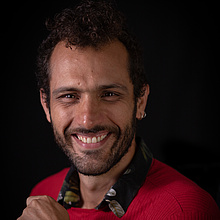
studied environmental management and urbanism in Brazil and was an International Climate Protection Fellow of the Humboldt Foundation at the Institute for Advanced Sustainability Studies (IASS) in Potsdam from 2020 to 2021. He is co-author of “Sustainable Solutions for the Global South in a Post-Pandemic World”.
2. Closer and deeper collaboration between academia and industry
Artificial intelligence (AI) is likely to have profound influences on science and technology, human society, and human beings. I would be very happy to see the government help to establish a closer and deeper collaboration between academia and industry, in particular SMEs (small and medium-sized enterprises), on knowledge transfer from academia to industry, while continuing to support independent and innovative fundamental research on AI, and to promote multi-lateral, mutually beneficial international collaborations and academic exchanges.
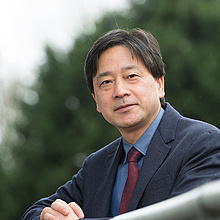
is an Alexander von Humboldt Professor for Artificial Intelligence at the University of Bielefeld. He works in the field of evolutionary computation. In the course of his international career, he has also conducted industrial research.
3. Building bridges between disciplines, empowering diversity and talents
The most pressing scientific challenges of our time revolve around how we, as a species, interact with the world we live in and depend upon. Because the discoveries that allow us to flourish in a changing world will be found at the intersection of the social, natural and physical sciences, we must change the incentive structures that promote narrow specialization rather than cross-disciplinary integration, cultivating a generation of scientists capable of bridging disciplinary divides. We must also fundamentally re-envision how we recruit, train and retain scientific talent, harnessing the power that new voices and diverse perspectives bring to the scientific endeavor. Creating stable career pathways for young scientists must be a priority.
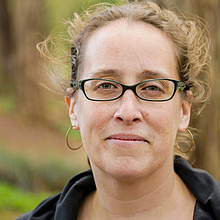
is a behavioural ecologist and evolutionary anthropologist interested in the evolution of social complexity. She was awarded an Alexander von Humboldt Professorship in 2018 and came to Germany from the University of California in Davis, USA. She is presently a professor at the University of Konstanz and director of the Max Planck Institute of Animal Behaviour.
4. Innovation instead of micromanagement and bureaucracy
It is a privilege to work as a professor in Germany. There are excellent researchers and scientific output is highly valued. However, bureaucracy and the many rules (e.g., related to data protection) have made people risk adverse and this is slowing down progress. I would like to see bold innovations that let professors do cutting-edge research and provide high-quality teaching. There is a natural tendency to create more rules and guidelines. Innovative successful startups like the process-mining company Celonis are the exception. Celonis is Germany’s only Decacorn (i.e., a startup valued over $10 Billion) and grew out of academic research (I’m serving as the chief scientist in Celonis). The government should stop trying to micromanage professors. Instead, it should be a priority to remove bureaucracy and improve the return-on-investment of the taxpayer’s money (i.e., cutting-edge research, high-quality teaching, exciting startups, and digital infrastructures).
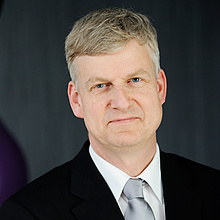
came from the Netherlands in 2018 with an Alexander von Humboldt Professorship to RWTH Aachen, where he is head of the Process and Data Science Group and Chief Scientist at Celonis. He is known as the founding father of process mining.
5. The next breakthrough in AI should come from Germany
AI research in German must become more heterogeneous! This is seen as necessary since we do not know yet what intelligence really is. We only know that no technology available today can artificially recreate biological intelligence. Nonetheless, science funding is strongly geared to current technology trends. For example, during the early days of AI research the focus was on expert systems. Today, machine learning is receiving most of the attention. When it comes to such trends, Germany trails the “players in the major league”. Greater heterogeneity in research funding would however open up the possibility of Germany becoming the cradle to entirely new trends and assuming a leading role in AI research. Today, one thing is certain: We are still waiting for the breakthrough that will bring us real AI. What if this breakthrough came from Germany? Any breakthrough would unquestionably be based on insights that go beyond the technology trends we see today.
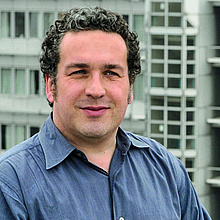
is a professor at the Robotics and Biology Laboratory of the Institute of Computer Engineering and Microelectronics at TU Berlin. He returned to Germany from the University of Massachusetts Amherst, USA, as an Alexander von Humboldt Professor in 2009.
6. Germany’s current collective bargaining law for science puts an end to careers
The Act of Academic Fixed-Term Contract in combination with current collective bargaining law destroys careers! We definitely need a collective bargaining law that specifically applies to occupations in science and harmonises the flexibility needed in this area with job security in realistic ways. Greater flexibility would also help from a science standpoint. One thing that is needed in order for research to be efficient – in order to, say, link issues in the agricultural and forestry fields with issues relating to biodiversity and the climate crisis – is more flexible funding programmes for small groups with participants from two to five countries.
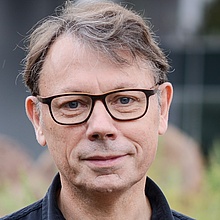
is a professor at the University of Leipzig und heads the Department of Soil Ecology at the Helmholtz Centre for Environmental Research (UFZ). He was a Humboldt Research Fellow at the Department of Biology at the University of Tübingen from 1988 to 1989.
7. The best research comes from respectful collaborations
As a Scientist, I am interested to see that funds are made available for research, especially for blue-sky research as we need to have information and methodologies in place now for which we may only realize the full potential of much later. As we know from the Humboldt Foundation, the best results come from friendly, respectful collaborations, hence, I would love to see money flow to such organisations that promote scientists to collaborate internationally: bringing the best young minds (and the not-so-young, experienced minds) from all over the world to network and work together in Germany is one of the best ways to keep good science and foster good relations all over the world. I urge the new government to break the mould and be the trail blazers in halting climate change and correcting the damage already done.
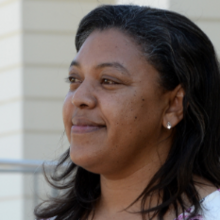
teaches at the Department of Biological Sciences of the University of Cape Town in South Africa. She was a Humboldt Research Fellow at the Center for Experimental Medicine at the University Medical Center (UKE) Hamburg-Eppendorf from 2002 to 2003. She is also a Humboldt Alumni Award winner and served as the Humboldt Foundation’s Ambassador Scientist in South Africa.
8. Intensive research is still needed in order to fight climate change
Climate change and its manifold consequences are very clear to see all over the world. Mirroring the physical and political heterogeneousness of our planet, the effects of climate change vary in their intensity and people’s perceptions and thoughts about climate change likewise differ greatly. However, global action – based on intensive, cross-border research work – is necessary in order to keep climate change as far as possible in check. The Humboldt Foundation is an excellent platform for studies of this kind. The Foundation made it possible for me to establish a network that spans all continents. Together we are researching the occurrence of extreme weather and climate events like torrential rains or extreme storms and the long-term forecasting of such events which poses a particular challenge for disaster preparedness and reducing the effects of disasters. I really hope that the new government will adopt comprehensive measures – and the financing for them – which will make it possible to curb climate change to the greatest possible extent and will support intensive research.
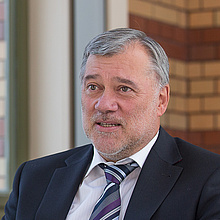
is a senior advisor in the Department of Complexity Science at the Potsdam Institute for Climate Impact Research and also a professor and senior advisor at Humboldt-Universität zu Berlin. He is active in the Humboldt Foundation’s network as a host and peer reviewer.
9. Fostering cooperation with India and start-up culture
Being a resident of the largest democracy in the world (India), it is heartening to see in Germany a change of governance which keeps democracy vibrant, more so since I have had a close association with Germany (as a proud Alexander von Humboldt Foundation alumna) for the last 25 years. Scientific collaboration between the two countries has built a strong bond over the last 5 decades. Now, with India having more than 60 unicorn businesses (of which, more than 20 in 2021 alone), I hope, wish and look forward for linkage and funding of scientists and founders (start-ups) of our two countries.
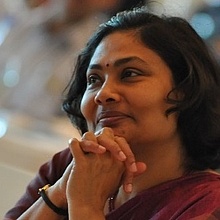
is a professor of physics at the University of Delhi in India. She was a Humboldt Research Fellow at the Max Planck Institute for Solid State Research in Stuttgart from 1996 to 1997 and was the Humboldt Foundation’s first Ambassador Scientist in India.
10. More risk and less regulation; facilitate commercial applications and spin-offs
The new German government should eliminate the backlog in innovation in all areas of government. Deficits in digitalisation, in streamlining government and in expanding the infrastructure are among the major issues that also act as a brake on our performance in leading-edge research. Basic research in particular should not be sacrificed to an urge to overly administrate and regulate. Otherwise, all these formalities will leave us no time for science here in Germany. Public funding should be easier to access for preparing the hiving off of start-ups at universities or non-university research institutes. Funding programmes such as GO-Bio (campaign to promote start-ups in the biotech field) and EXIST (consultancy services for students, graduates and scientists from universities and non-university research institutes who are interested in starting up a company) are good. However, this takes a long time and requires voluminous applications before they get approved. The support provided for transferring existing knowledge to private commercialisation could also be improved.
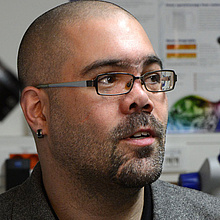
is managing director at the Max Planck Institute for the Science of Light and professor of biological optomechanics at FAU Erlangen-Nuremberg. In 2011 he left the University of Cambridge to return to Germany where he accepted an Alexander von Humboldt Professorship for Cellular Machines at the Biotechnology Center of TU Dresden.
11. Germany’s engagement for scientific exchange and science diplomacy is vital for the future
Over the last few years, I’ve come to appreciate the value of the science network created by the Humboldt Foundation. I admire the network’s openness, transparency, and the trusted dialogue that it facilitates across international boundaries. Supporting the Humboldt network is essential for science in this time of mistrust and misinformation, as it connects individuals in their shared beliefs, field, and purpose. It’s clear that scientific exchange and cultural diplomacy are influential tools in building bridges between countries and in developing cooperative strategies to overcome global challenges. I see the Humboldt network playing an important and vital role in Germany’s international engagement into the future.
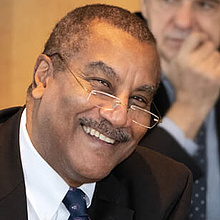
is a professor of chemistry at the University of Pennsylvania, USA. He is a member of the American National Academy of Sciences and was also elected to the German National Academy of Sciences Leopoldina in 2021. As a Humboldt Research Award winner, he was hosted by the University of Duisburg-Essen and the University of Wuppertal. He is also a member of the Board of Directors of the American Friends of the Alexander von Humboldt Foundation.
12. Building safe havens for refugee researchers
Sadly, conflicts are steadily increasing around the world, leading to an expansion in the number of refugee researchers. Accordingly, support must be continued and expanded. An essential task would be to continue to work with concepts such as acceptance, tolerance and integration. Safe havens are only created where people are clear about what they can build, and the newcomers are ready to join in a new culture. It is clearly a collaboration. What is needed is mentoring, suitable jobs, and a lot of collaboration with private industry to bridge the gaps in employment in which highly skilled researchers are daily confronted.
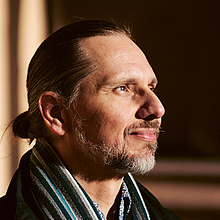
was professor of chemistry at the University of Carabobo, Venezuela, until 2017. He then switched to Hochschule Mannheim University of Applied Sciences with a fellowship from the Philipp Schwartz Initiative. Today he is an education manager at the European Institute of Innovation and Technology (EIT) and lecturer at the Baden-Wuerttemberg Cooperative State University (DHBW).
13. Integrate displaced researchers on a long-term basis
This age in which scientists from countries in crisis or conflict are increasingly forced to migrate holds many challenges – but also possibilities in the form of new opportunities for exchange and cooperation. Special funds and funding initiatives for researchers at risk enable vital initial access to the host country’s higher education system. However, in order to ensure sustainable scientific output, it is crucial that the efforts of those foundations and initiatives that stand up for persecuted researchers be supported by labour market and education policy measures that target the development of long-term career and advancement prospects.

is a sociologist of work and social stratification with a focus on precarious academic labour. Funded by the Humboldt Foundation’s Philipp Schwartz Initiative, her current project at Bard College Berlin examines various types of labour movements in today’s academic sector.
14. Supporting women and international networks in research
Structural efforts to support women that I experienced during my research stay in Germany, gave me a sense of belonging. The system supported me in life situations related to having children and encouraged me to stay in science. Back in the Czech Republic, my experience enabled me to clearly communicate practical benefits of systemic measures that support women. I wish that the German government would strengthen cooperative networks like the Humboldt Network that are essential for exchange of experience that can lead to positive changes around the world.
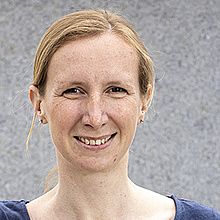
is the deputy head of the Department of Biophysical Chemistry at the Czech Academy of Sciences in Prague and a co-founding member of the Czexpats In Sciences initiative which networks and connects Czech scientists and scholars abroad. She was a Humboldt Research Fellow at Freie Universität Berlin from 2017 to 2019.
15. Using AI for climate protection technology made in Germany
Our world is speeding toward a global climate disaster. Conversion to climate-neutral, sustainable systems is crucial to ensuring a safe and liveable future for us all. Germany has enormous scientific, social and economic potential. It must be our hope that – besides achieving the necessary realignment in the area of energy technology – artificial intelligence will also help us manage and stabilise these increasingly complex processes. Not only could sustainable, climate-neutral, smart technology from Germany become a leading export – it could also help globally to keep Earth from warming further.
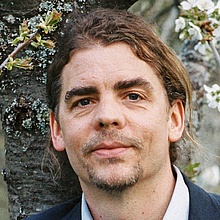
is a professor in the Computer Science Department of the University of Tübingen. He was a Feodor Lynen Research Fellow at the University of Otage in Dunedin, New Zealand, from 2017 to 2018.
16. Better synergies of support for African countries
The Alexander von Humboldt Foundation popularizes science in Africa by providing lifelong support to highly qualified scientists. It strengthens scientific links between African researchers and Germany. The foundation also supports the African-German Network of Excellence in Science for the south-south mobility of highly qualified doctoral students on the continent. My suggestion in the near future is for a better synergy between the different German structures and programs operating in Africa such as Humboldt Foundation, DAAD or VolkswagenStiftung.
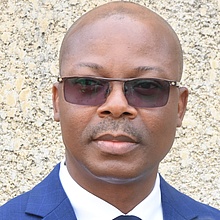
is a professor at the Faculty of Agronomic Sciences of the University of Abomey-Calavi in Benin. He was a Humboldt Research Fellow at the University of Freiburg from 2007 to 2008. He was selected in 2021 to be director of one of six new Humboldt Research Hubs in Africa that are being established to address pandemics.
(Press release 32/2021)
Every year, the Alexander von Humboldt Foundation enables more than 2,000 researchers from all over the world to spend time conducting research in Germany. The Foundation maintains an interdisciplinary network of well over 30,000 Humboldtians in more than 140 countries around the world – including 63 Nobel Prize winners.

